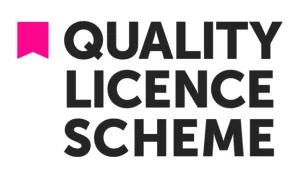Welcome to Open Learning College – Change your career, Increase your salary, and Improve your life.
 Course Overview
Course Overview 
Embark on a transformative learning journey with the UK’s most innovative home study provider, offering courses designed to unlock your true potential and facilitate the career change you desire. Access our distance learning courses directly from anywhere, anytime, and acquire industry-recognised Professional Qualifications essential for advancing in your career.
Specifically, explore the flexible and convenient Project Management (Level 3) course, an ideal way to gain a diploma qualification. Whether you aim for further education, improved job prospects, or expanded knowledge, this comprehensive course allows you to prepare thoroughly for exams or careers through home study. Plus, it’s structured to be accessible and beneficial even if you have no prior knowledge in Project Management.
Project Management spans a wide industrial sector base including engineering, construction, information technology, manufacturing and many other business sectors. It can either form a permanent role or a short-term consultancy within an organisation to help plan, organise, run, monitor and evaluate and exiting a specific piece of work. This course provides a foundation in structured Project Management with a specific focus and appeal to Information Systems and has an IT bias. The reason for this is that the amount of business done electronically has increased exponentially in the last two decades. A discussion on why it is used, why it can prove difficult and its importance is discussed throughout. Tools to support the work will be investigated and evaluated.
 Course Key Topics
Course Key Topics
the Project Management (Level 3) course is divided into 10 modules.
Module 1: Introduction to Project Management
Project Management is structured into the three important elements of Planning, Organisation and Control, and each element will be examined within the project lifecycle activities. The structured approach to implement Project Management and the concepts of the APM Body of Knowledge, the latter of which has been produced to establish quality standards within the profession is considered. It is used because is a tried and tested way of using a process known to work, can be costed and monitored. Setting goals, written contract or plan after discussion with all the stakeholders is shown. Particular focus will be given to Infrastructure Projects, Software Engineering, Business Process Re-Engineering, Enterprise Management Systems, Bespoke Systems build (Programming), Package Implementations, E-Commerce Systems and Desktop Systems.
Module 2: Project Management Methods
Irrespective of the size, type and nature of a project, they all have similar processes and methods. This section will explore the different structured approaches to implementing project management. The emphasis is on proving the importance of using a structured approach, and why an unstructured process is less efficient is discussed since not everybody advocates the use of adopting a structured approach. How the better and distinct methods have conquered that problem by providing scaled down versions for small business applications is explored. Equally, adopting an interface to Programme Management techniques where there is a requirement to manage an integrated portfolio of projects.
Module 3: Project Planning
A project will produce outcomes and success if everyone is made clear about the methodology and their role in the process. The technique for the start to completion of the Project Planning requirements within Project Management is explored. There are numerous packages and software planning tools depending on the nature of the project, in particular Microsoft Project 2003, so how each is used project is explored. The following areas will be covered to see how the project can be broken into sections and summarised using visual charts, e.g. Project Scheduling, The Gantt, Pert or RAP Chart, Product Flow Diagrams, Breakdown Structures and Quality Products. setting goals, targets and milestones and how to managing risk is covered in detail as this is key to managing change. The planning of reports is also done from the offset, and who and how this is done is covered in depth as it will be the key document for the executive to what has been done and in guiding them to changes that need to be implemented.
Module 4: Project Organisation
Once a project is planned, who does what needs to be discussed with every stakeholder. Different skills and the use of leaders to e.g. direct, collaborate, coerce or consult are useful in making people motivated to do what is instructed and decided. Project Organisation also considers how resources are utilized on the project. This will be explored in association with the structured approach, e.g. on how to establishing a Project Board and their role which can be depicted visually to ensure everyone is informed of their roles. Key roles in project management will be discussed e.g. the Assurance, Support, Change leader and head of Risk. Communication is vital so the use of the intranet e-enablement is addressed.
Module 5: Project Control
There are five crucial elements to managing a project which need to be controlled to the conclusion of the projects and these are: time; cost; quality; scope and risk. This can be done by controlling each variable with a detailed plan and a checklist. The initial organisation must include an examination of Project Briefs and Initiation Documents, any deliverables, how to assess progress [including risk] from start, midway and to the end, set checkpoint for quality which can be shared at project Board meetings. Throughout the project monthly highlight reports showing control measures and milestones will be produced so how best to do this is explored. Finally the successful conclusion of a project is needed and how to do this is discussed.
Module 6: Tools and Techniques
The most difficult thing to estimate and allow for is time. It is difficult to know how much staff time will be needed, and when at times we might be paying over £3000 for an expert per day, the importance of this becomes clear. Credibility and respect are important, and if a project is mismanaged these are quickly lost. Ways to allow for the unexpected using Critical Path Analysis are discussed, e.g. common checkpoints such as contingency plans for loss of staff through unexpected meetings, other demands on their time and illness. The key tools are how to estimate and log time and resources needed, and being aware of progress by setting targets which are controlled by a Controlling Steering Committee. An agile and extremely organised project management is required and the skills needed to do this are shared.
Module 7: Project Management Reports
The amount of paperwork and bureaucracy arising in a project is vast so it needs to be organised to be worthwhile, useful, communicate progress and act as a guide for the executive and all concerned. The type of reports that need to be produced in the management of a successful project involving constructive communication are discussed, e.g. weekly or monthly highlight reports, financial control, change, risk management and quality reports. These reports keep management aware of progress and abreast of any problems and it starts to raise awareness of key findings that will be embedded into the final report which includes any lessons learned. How to configure, structure, write appropriate and useful reports is covered in detail.
Module 8: Project Estimating Techniques
A project idea in its inception needs to be justified to the executive in order to get funding and support. In order to do this how to propose anticipated benefits, design a methodology and describe potential costs and resources needed is explained. Generally skills are gained by using past case studies and outcomes of successful projects. Computer software exists to help with this, but certain amount of skills and experience can help define a rough estimate of what will be required. Often this involves a complex mathematical model and some useful software applications are examined. The key to success is learning how to involve the staff who will be involved in the project, e.g. identifying any potential experts, suitable managers and motivators.
Module 9: Managing Project Change
As an organisation grows or progresses in order to meet current trends and stay modern within its environment, some change will be recommended. Often when consultants are brought in they assume that they are change managers and will look immediately at what they can change. Key to change management is identify what needs to be changed and use an integrated approach, e.g. IT can be updated or a more efficient software identified, change of organisational structure or roles and responsibilities of staff or to meet new legislative rules and recommendations such as equality training. How change management works, what strategy they use and the techniques involved in helping change within an organisation are discussed since often there might be resistance and unhappiness even stress and illness at what is seen as introduction of the new and unfamiliar. How to make change efficient and transformative, and the skills needed to do this are explained.
Module 10: Global Project Management
It has become clear that much can be learned from looking at successful global markets such as in south East Asia particularly IT in China, India, Singapore, Taiwan and South Korea and also in outsourcing to countries where certain areas of business are cheaper and better quality. A review of how the profession is responding to change and the demands placed upon it by the global business transformation taking place is discussed. Factors and issues such as demands of the global economy in Project Management and the knowledge needed, standards and business ethics are explored. Although business English is the universal language, a look at the international Project Management profession, including issues and challenges such as cultural awareness to implement a cross-global team that works well, respectfully, effectively and efficiently.
(Please click on the curriculum tab above to see a detailed view of each module)
Course Content
Project Management (Level 3) – FREE Starter Pack
How to…. (a series of explainer videos)
Module 1 – Introduction to Project Management
Module 2 – Project Management Methods
Module 3 – Project Planning
Module 4 – Project Organization
Module 5 – Project Control
Module 6 – Tools and Techniques
Module 7 – Project Management Reports
Module 8 – Project Estimating Techniques
Module 9 – Managing Project Change
Module 10 – Global Project Management
Course Resources
Final Exam
College Announcements
🔍 Unlock the Secrets of Project Management with £50 OFF the Course! 📊🕵️♂️
Ready to delve into the intricacies of project management?
For a limited time, we're excited to offer an exclusive £50 discount on our Project Management (Level 3) course!
Use code PROJECT50 at checkout before the month ends!
🌟 Why Choose Our Project Management (Level 3) Course
Presented by Open Learning College, this course is your key to mastering structured project management with an IT bias. Explore ten comprehensive modules covering everything from planning and organization to control and global project management. Gain practical insights into methodologies, tools, and techniques crucial for success in various industries.
💡 What Makes Our Course Shine
Flexibility: Tailor your learning to your schedule, with 24/7 access to course materials.
Expert Support: Benefit from guidance by experienced tutors throughout your educational journey.
Real-World Application: Acquire practical skills and knowledge vital for effective project management.
Don't miss this chance to unlock the secrets of project management at a discounted rate! Enrol now, use code PROJECT50* at checkout, and embark on your journey towards becoming a skilled project manager. 📈📚
*This discount code cannot be used in conjunction with any other offer.









 Get Social!
Get Social!







Lily Carter.